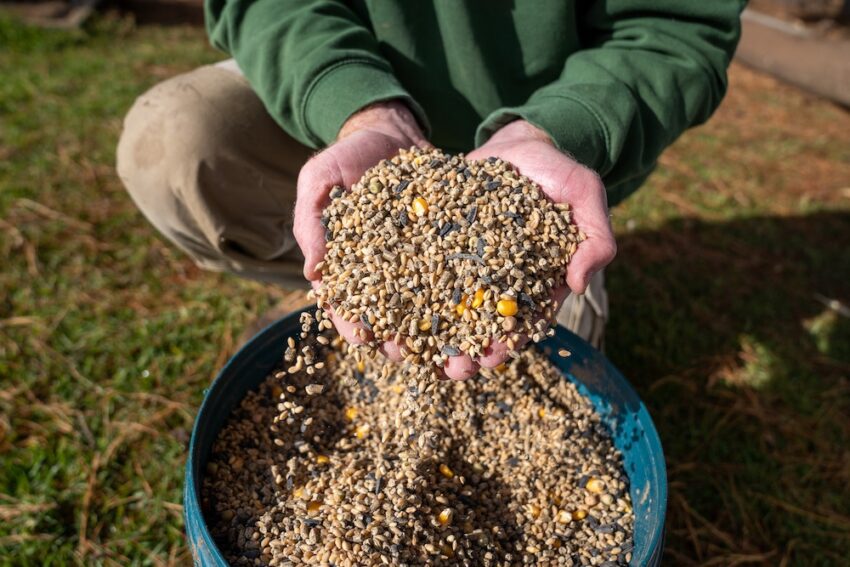Introduction
Farming is the backbone of many economies around the world. With the growing population, the demand for food is increasing at an alarming rate. To meet this growing demand, farmers are relying heavily on conventional farming practices which involve the use of chemicals and synthetic fertilizers. However, these practices are not sustainable in the long run and are damaging the environment. One of the key aspects of conventional farming which needs an alternative is the use of chemical-based commercial animal feed.
Negative Impact of Commercial Feed
The commercial animal feed which is commonly used contains several chemicals and synthetic additives to increase production. However, these feeds have serious negative impacts. They compromise the nutritional value of the animal-sourced food and disrupt the gut health of livestock. long-term consumption of these feeds loaded with antibiotics and hormones poses risks to human health as well. Moreover, the production of these feeds involves degrading natural resources and emitting greenhouse gases. It contributes significantly to various environmental issues like pollution, biodiversity loss, land degradation, etc.
Need for Organic Alternatives
Considering the many drawbacks of conventional commercial feeds, there is a pressing need to switch to organic and sustainable alternatives. Organic Feed aims to nurture the health of soil, environment as well as animals. It relies on ingredients that are grown without the use of potentially harmful pesticides and fertilizers. Organic feed contains natural vitamins, minerals, and proteins required to support the nutritional needs of livestock. This helps improve their welfare and productivity in an ethical manner. At the same time, organic feed production protects the environment by reducing pollution and conserving natural resources.
Important Aspects of Organic Feed
Some of the key aspects that make organic feed a viable alternative are discussed below:
Ingredients – Organic feed ingredients include organic grains, legumes, forages and pasture grass. These are grown through natural farming practices without using synthetic pesticides, fertilizers, antibiotics, or GMOs.
Nutritional Value – Being made from whole and nutrient-dense organic ingredients, these feeds provide complete and balanced nutrition to livestock. This supports their immune function and overall well-being.
Traceability – The ingredients used and production process of organic feed are strictly regulated and certified. This ensures complete traceability of the feed from farm to fork.
Sustainability – Organic feed production helps conserve water resources and reduces pollution. It improves soil fertility through practices like crop rotation.
Ethics – By avoiding the use of hormones and routine antibiotics, organic feed allows animals to exhibit natural behaviors and live a stress-free life.
Better Quality – Livestock fed organic diets tend to be healthier with less occurrence of diseases. This directly translates to higher quality dairy, meat and other animal products.
Challenges in Large-scale Adoption
While the benefits of switching to organic feed are immense, there are also some challenges that hinder its widespread adoption:
Higher Production Costs – Sourcing certified organic ingredients and following strict production standards increases the cost of organic feed compared to conventional ones.
Limited Availability – Since demand is currently lower than supply, organic feed ingredients are not as readily available in sufficient volumes required by large-scale farms.
Require Knowledge – Farmers need to acquire new skills and knowledge related to organic feed formulations and natural livestock management practices.
Skepticism about Yields – Some farmers remain hesitant thinking that organic systems may compromise the yields and profits. However, studies indicate otherwise.
Lack of Policy Support – Governments need to offer more incentives and infrastructure support to encourage organic practices at the commercial level.
Addressing these challenges through collaborative efforts of all stakeholders will help accelerate the transition of conventional systems to more sustainable organic models of livestock farming. This is crucial to ensure food and environmental security for future generations.
*Note:
- Source: CoherentMI, Public sources, Desk research
- We have leveraged AI tools to mine information and compile it

